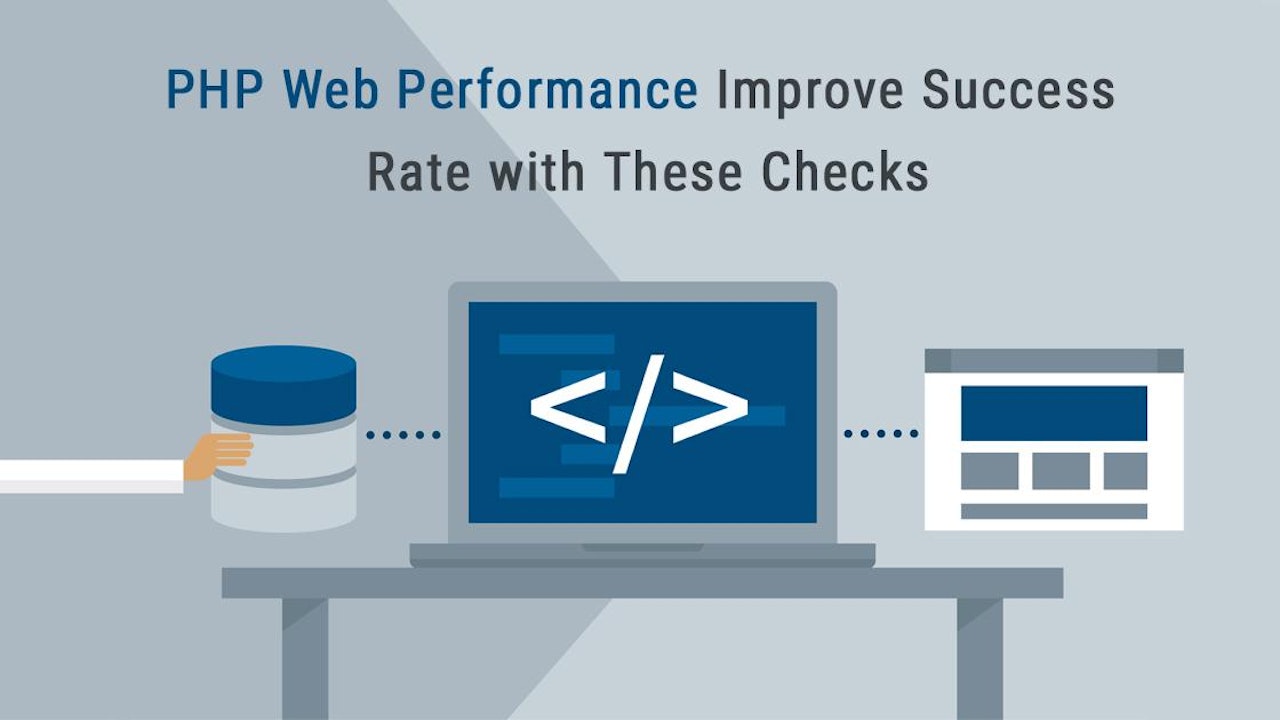PHP is the favorite language of developers due to its swift and easy to use approach. Also, it allows them to cast it according to client’s specific needs. Its latest version i.e. PHP7.x is already doing wonders in the market.
But maintaining the optimal performance of your PHP powered application needs more than simply coding a website. We all know how much it is important to enhance your overall website performance. It doesn’t only provide a great UX to end users but also increases our revenues.
In this article, I will discuss effective tips to enhance PHP web performance. Primarily, you will go through key actions that are necessary to improve server-side PHP code’s performance. Let’s start!
1. Cache
Performing website cache rules the list ofvarious website performance optimization checklists. Caching method doesn’t only help you to enhance UX but also increase the website performance by reducing page download times. It is an easiest and most important way to speed up your PHP web application.
A cache is a copy of your HTML pages or images that a web server stores to present it to visitors for their next time arrival. Any invalid or unnecessary cache may result in the slow performance of your website.
Therefore, you need to perform caching especially on server-side to shun a huge portion of offload times of your website. To perform this, you can use different tools available. Caching of PHP web application helps us in,
- increased page load times
- SERPs (search engine result pages)
 View Website
View Website
 View Website
View Website
 View Website
View Website
- save memory requirements.
2. Suppress Loops
PHP generally supports 4 types of Loops to execute a particular block of code for a certain no. of time. When you hire PHP developers, they routinely utilize loops to carry out different instructions.
Apparently, loops are quite powerful and tend to save a lot of development time. Still, they can easily cause blockades. For example, if certain code is slow in execution and put on loop, you can easily think of the overall performance of your application.
The performance concern will eventually be magnified. Therefore, developers should be extremely careful while assessing Loops in PHP web development.
3. Minify Static Scripts
PHP utilizes different scripts like JS, CSS, HTML, etc. to build a whole web application. Therefore, not only PHP but these scripts also contribute a certain role in web application’s performance.
Minifying these static scripts will allow you to cut down in total processing time, a fast loading application eventually. You can perform manual steps like minimizing server requests, minimizing downloadable elements’ size, Load order optimization, merging, refreshing JavaScript and CSS files, and so forth.
No need to perform a manual process every time. Try out some easily available tools like JS & CSS Script Optimizer or JavaScript Minifier etc.
4. Use Updated PHP Versions
It has always been recommended to keep PHP software updated with latest versions releases. Every new version comes with many new enhancements and upgrades. This way you can overcome the difficulties or performance issues faced with the previous versions of PHP.
If you conduct a performance test of an old version of PHP with PHP 7.x, you will always get a fact that it is a way better to upgrade versions. Thus, you should stay up to date with PHP versions in order to avoid breaking your application for poor performance.
FINAL WORDS
If you wish to improve your PHP web performance, you can follow these above-mentioned tips. Some of the tips involve technical expertise whereas a few can be achieved on your own.
Therefore, you first need to review your web applications’ current performance than create a list of issues involved. This way you can easily figure out the best performance optimization tip to follow.
In case of severe performance issues, you can consult PHP experts to get tailored solutions.


Comments (0)